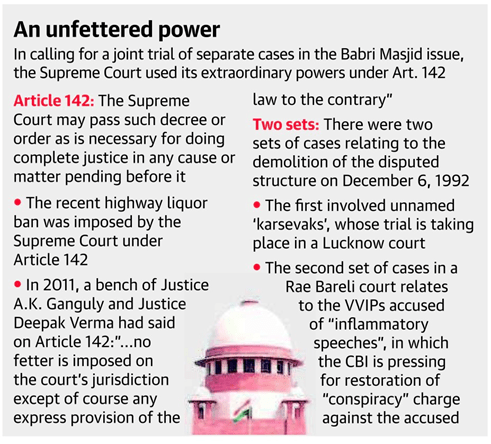Why in news?
A nine-judge Bench of the Supreme Court declared that superior courts enjoy untrammeled power to take up any cause to do complete justice – three months ago, decided to go ahead and examine “larger issues” of religious freedom across multiple faiths in connection with the Sabarimala review.
Background: Entry of women
- Supreme Court’s original Sabarimala judgment of 2018, which allowed women of every age to enter and worship at the temple was to be reviewed by Supreme Court in 2019 (Which didn’t happen).
- However, “larger issues” concerning essential religious practices of various religions and clubbed other pending cases on subjects as varied as female genital mutilation among Dawoodi Bohras to entry of Parsi women who married inter-faith into the fire temple and Muslim women into mosques etc., were all referred to a larger bench.
- Hence the question arose as to how a Bench sitting in a limited review jurisdiction assumed powers to frame new questions of law?
Now: Dismissed Objections
There is no fetter on the exercise of discretion of this court in referring questions of law to a larger Bench in review petitions. Being a superior court of record, it is for this court to consider whether any matter falls within its jurisdiction or not.
It invoked Article 142 of the Constitution “which enables this court to make any order as is necessary for doing complete justice in any cause or matter pending before it.”

-Source: The Hindu



